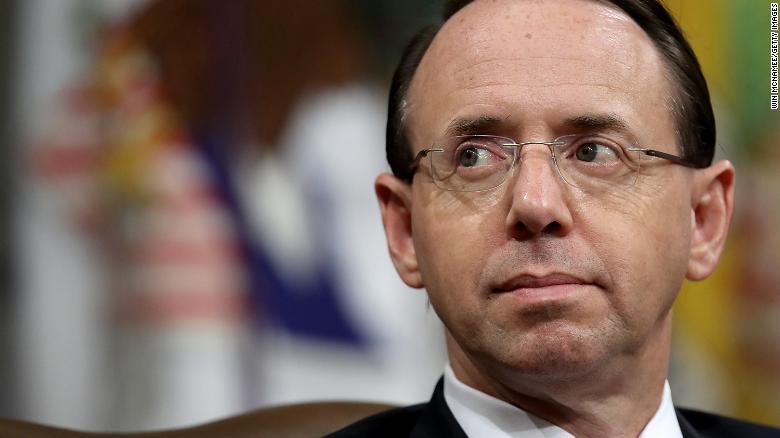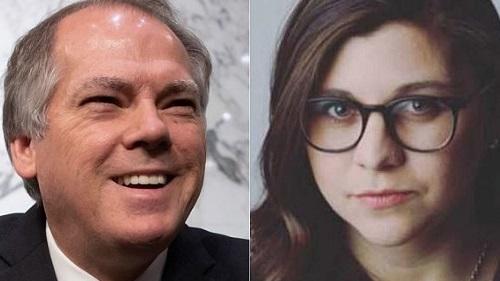Over the past few months, the Department of Justice has been quietly engaged an effort to revise its guidelines governing the rules for seizing records from journalists – especially when it comes to leak cases, reports The Hill‘s John Solomon.
The effort has the potential to touch off a First Amendment debate with a press corps that already has high degrees of distrust of and disfunction with the Trump administration. –The Hill
Current guidelines were established during the Clinton Administration – “long before WikiLeaks was a twinkle in Julian Assange’s eye,” and were designed to balance a journalist’s First Amendment rights and the investigative interests of law enforcement. They require prosecutors in most cases to exhaust all obvious investigative methods for identifying leaks before they go after a journalist’s records – and free-speech rights.
In addition, the rules generally have required DOJ to alert news organizations in advance of a possible subpoena, giving both sides a chance to negotiate before the subpoena — viewed as a nuclear button by most journalists — gets pushed.
…
Multiple sources familiar with the ongoing DOJ review tell me that it has two main goals. The first is to lower the threshold that prosecutors must meet before requesting subpoenas for journalists’ records; the second is to eliminate the need to alert a media organization that Justice intends to issue a subpoena. –The Hill
Supervised by Deputy Attorney General Rod Rosenstein’s office following the departure of Attorney General Jeff Sessions, the revisions are not yet finalized according to Solomon’s sources – who note that Acting Attorney General Matt Whitaker is aware of the effort but has not been given a final recommendation.
“Sources close to Whitaker say he will await final judgment but, in recent days, has developed reservations about proceeding with the plan,” writes Solomon.
“After a lengthy period of turmoil and regular criticism from President Trump, DOJ has enjoyed a period of calm normalcy that has put employees’ focus back on their work and not the next tweet. Matt doesn’t want to disrupt that unless a strong legal case can be made.”
Why are they changing the rules?
Solomon’s sources tell him that a massive increase in criminal leak investigations have prompted the efforts. And with Rosenstein signaling his intention to step down in a few weeks, all eyes are on whether or not Whitaker might reject them – and if not, how will Trump’s nominee for Attorney General, William Barr, view the changes?
Sessions admitted over a year ago that there has been a 300% increase in criminal leak probes, including fired FBI deputy director Andrew McCabe and a senior Senate staffer, James Wolfe, who handled classified documents while he was banging 22-year-old journalist Ali Watkins who swears he never provided her classified information. Watkins was working for McClatchy at the time, before moving on to BuzzFeed, Politico and the New York Times.
Those in favor of the change argue that prosecutors are wasting time going down rabbit holes to find leakers that could simply be uncovered via subpoenaed records. The savings in resources could be then applied to other criminal enforcement actions.
Advocates also contend that current rules treat journalists as a protected class whose First Amendment rights are more important than those of other Americans. “The view is all men and woman were created equal and that becoming a journalist shouldn’t suddenly change that equilibrium,” explained one of Solomon’s sources.
And what does it mean for Journalists? The proposed change will likely be viewed similarly to when the Obama administration ramped up its prosecution of leakers and targeted journalists like James Rosen for what they have reported.
Solomon shares his personal experience of having his records seized without first being notified.
I, for one, have a special vantage point molded by personal experience.
As an investigative journalist for The Associated Press at the start of George W. Bush’s administration, the Justice Department and then-Deputy Attorney General Robert Mueller — yes, the same one now running the Russia investigation — subpoenaed my phone records without notifying AP.
Justice then took special steps to delay notifying me for months, a delay that allowed Mueller’s nomination as FBI director to be confirmed by the Senate before lawmakers could learn of the intrusion on my First Amendment-protected reporting.
There was an outcry, but it didn’t stop Justice from further intrusion. A few months after seizing my phone records without the normal notification, the DOJ went a step further and seized my personal mail through the FBI, where Mueller was then the boss.
This time, they didn’t use a subpoena or a warrant. They used an archaic legal concept known as “border-search authority” to open a package coming from the Philippines that included a legacy FBI lab report sent to me by a source.
The report was neither classified nor deemed sensitive. It simply was embarrassing to the FBI because it showed the bureau was aware of al Qaeda terrorist plots targeting airliners well before the 9/11 attacks.
After finding the report, the FBI kept the document from me without seeking a warrant or subpoena — a clear, unequivocal violation of my Fourth Amendment protections against illegal search and seizure.
When my package didn’t arrive, I became suspicious and eventually proved that the FBI had confiscated it illegally. When confronted, the FBI admitted it had engaged in wrongdoing and the bureau, DOJ and AP lawyers worked together to put rules in place to avoid the type of abuses to which I’d been subjected.
My case showed that, even with rules in place, the DOJ and FBI had the means, motive and will to trample on the First Amendment rights of a free press. Furthermore, I saw the chilling effect that government intrusion had on my work: Well-intentioned sources were afraid to talk to me or to meet, for fear they would be caught in a dragnet.
It took months, years, to recover from that harm.
As Solomon concludes, these proposed rule changes will increase the risk that professional journalists face while doing their jobs – and is “a legacy that no freedom-loving, Constitution-abiding deputy attorney general or acting attorney general should want on their professional resume.”
via RSS http://bit.ly/2APBmvd Tyler Durden

